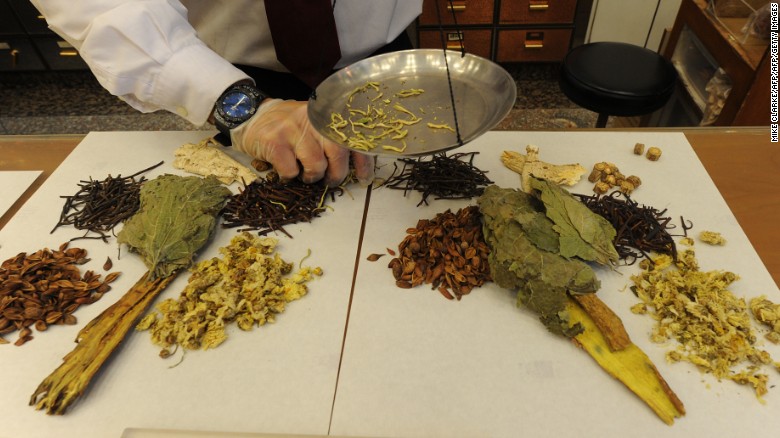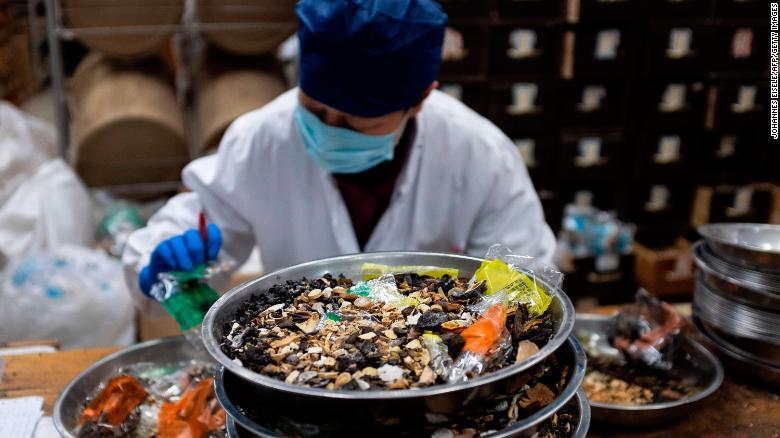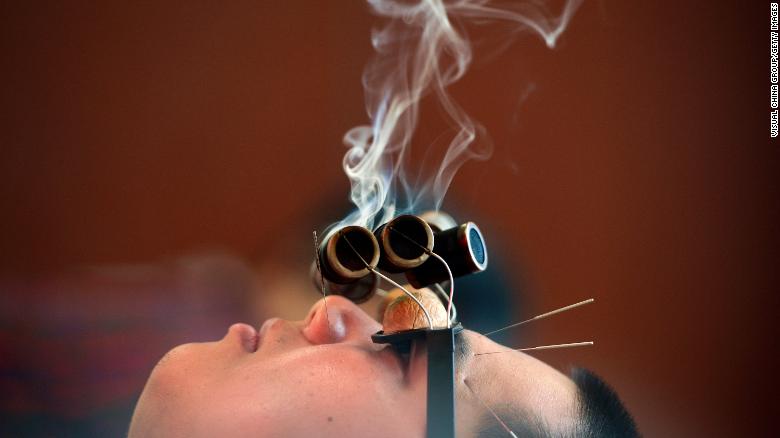In 2009, researchers at the University of Maryland surveyed 70 systematic reviews of traditional medicines, including acupuncture, herbal treatments and moxibustion, the burning of herbs near the skin. They found that no studies demonstrated a solid conclusion in favor of TCM due to the sparsity of evidence or the poor methodology of the research.
This lack of scientific rigor has created space for often outlandish claims about TCM's capabilities in treating certain disorders -- something boosted by the handful of TCM-related treatments which have been scientifically proven to be beneficial. In 2015, Chinese scientist Tu Youyou won the Nobel Prize in medicine for her work on malaria which drew on traditional practices and folklore.
Other products derived from herbs used in TCM have also shown benefits in scientifically-controlled experiments, vindicating TCM in the eyes of many practitioners, and there have been calls for renewed research in this area, as well as on other ancient remedies that might hold clues to future medical advances.
What concerns many scientists and doctors, however, is that instead of these experiments and findings boosting the reputation of an individual medicine, they are often held up as proof of the validity of the entire field of TCM, much of which has no basis in science and can be potentially dangerous.
"Treatments included within the wide TCM category are very different from one another," the European doctors said. "They can only be considered to form a group of therapies from the perspective of history/ethnology ('traditional') and geography (Chinese)."
Griffin, who helped draft the joint European statement, told CNN that "our concern is that in having this in the ICD, people who aren't critical, who aren't medical or scientific, they may take this as a sign the WHO has full confidence in Traditional Chinese Medicine."
A spokesman for the WHO said earlier this year that the inclusion of TCM in the new guidelines, was "not an endorsement of the scientific validity of any traditional medicine practice or the efficacy of any traditional medicine intervention."
Despite this, Dan Larhammer, president of EASAC, an umbrella body representing the national science academies of EU Member states, as well as Norway and Switzerland, said that it was "very likely that it will be interpreted this way by TCM proponents."
China's state-run news agency Xinhua seemed to confirm concerns about the move being interpreted as an endorsement by declaring it was "a major step for Traditional Chinese Medicine going global."
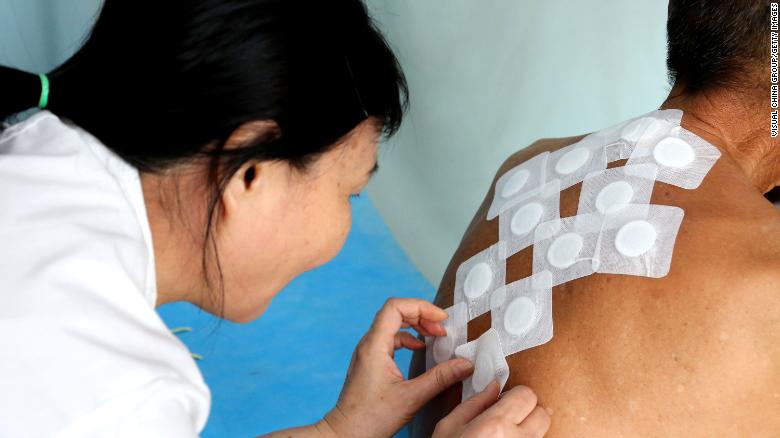
A patient receives treatment with bandages filled with herbs at a Traditional Chinese Medicine hospital on July 12, 2019 in Zaozhuang, Shandong Province, China.
Dubious claims
On Facebook and YouTube, dubious claims about the effectiveness of using TCM products in treating cancer and other major disorders are readily available. One page boosting TCM, "The Truth About Cancer," has more than 1.3 million likes on Facebook, and encourages users to follow along on a tour through Asia searching for alternative treatments.
"What if effective, proven, inexpensive cancer therapies were available to you? Would you choose them over toxic chemo and radiation?" Truth About Cancer says. "There is ample evidence to support the allegation that the 'war on cancer' is largely a fraud and that multinational pharmaceutical companies are 'running the show'."
The Truth About Cancer did not respond to a request for comment. Many other pages on Facebook make similar claims, both about the potential effectiveness of TCM, and against mainstream medical practices.
Tech companies have begun cracking down on misleading medical claims. In September, Google announced it was prohibiting "advertising for unproven or experimental medical techniques such as most stem cell therapy, cellular (non-stem) therapy, and gene therapy," and Facebook too has vowed to "minimize health content that is sensational or misleading."
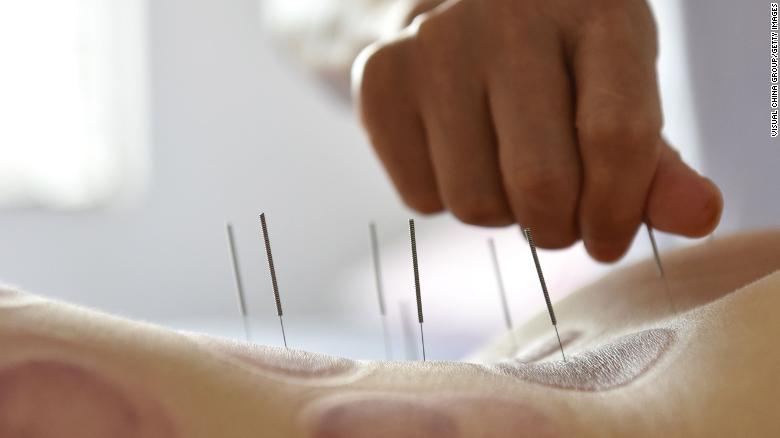
Acupuncture therapy in Hong Kong was linked to organ and tissue injuries, infection and other adverse reactions by a 2018 study.
While Facebook and Google have been praised for their recent efforts, the crackdown has had limited effect. On both Facebook and YouTube -- owned by Google parent Alphabet -- quack health cures still abound. Their prevalence has coincided with the continued rise of the anti-vaccination movement, which has had major negative effects on public health in some countries.
While many patients may see benefits in using alternative treatments, including TCM, alongside other medicine, risks arise when people avoid intervention because they are treating themselves with unscientific cures.
Most notably, Apple founder Steve Jobs repeatedly ignored doctors' recommendations on how to treat the cancer that eventually killed him, choosing instead to use acupuncture and herbal remedies.
TCM products are not necessarily harmless either. A comprehensive review of medicines and health products being sold under the TCM label in Hong Kong last year found that many were "severely compromised by the practice of adulteration," with potentially serious side effects, while in some cases, acupuncture has been linked to organ and tissue injuries, infection and other adverse reactions.
"The most important risk is that people and patients rely on unproven methods and refrain from using evidence-based methods," said Larhammer, the EASAC president.
"Patients lose time and money by relying on useless methods that can, at best, provide placebo response which is usually transient. Some alternative medicine methods, including TCM, involve side effects, especially herbal extracts."




 Reply With Quote
Reply With Quote




